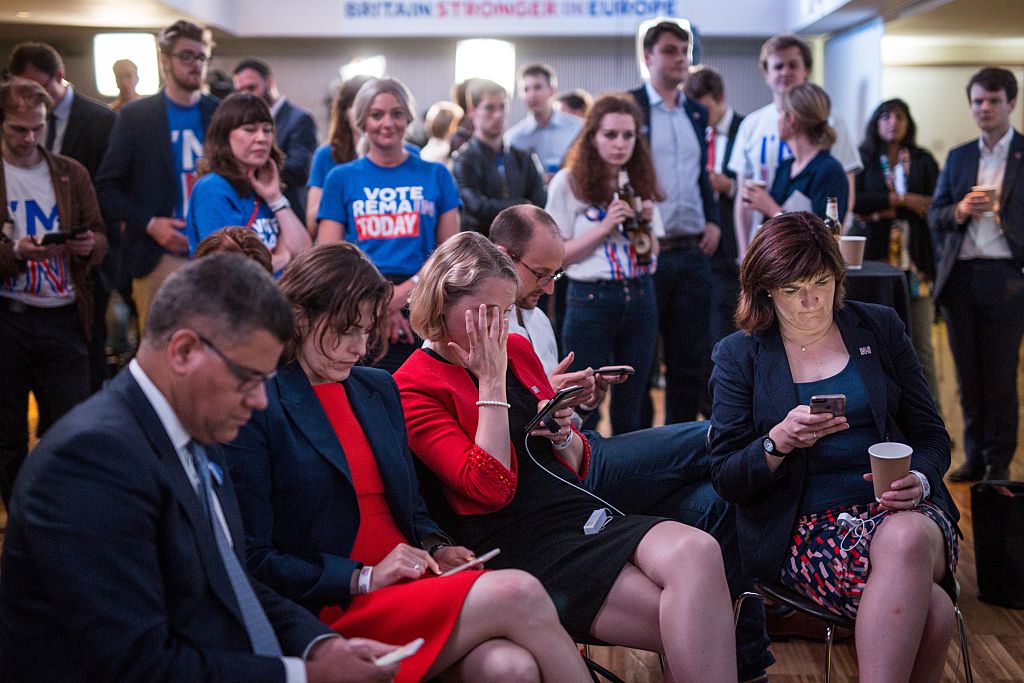London (Parliament Politic Magazine) – In January 2021, the United Kingdom concluded its exit from the European Union. Since then, the creative industries sector, constituting approximately 6% of the economy, has been notably affected by the decision made by Boris Johnson’s administration. They opted to replace membership in the single market and customs union with a more distant trade relationship with Europe.
The consequences for artists trying to perform across the continent have become more challenging due to financial and practical barriers. This is especially true for emerging acts with limited resources. According to estimates from the Best for Britain campaign group, the number of UK bands touring the EU this summer has decreased by nearly a third compared to levels before the pandemic.
The Impact of Brexit on Visual Arts
Less commonly acknowledged, however, is the impact of Brexit on the visual arts. This impact encompasses major exhibitions, cross-border trade, and the career prospects for both British and European artists.
Tristram Hunt, the Director of the Victoria & Albert Museum, who formerly served as a Labour MP and shadow secretary of state, expressed his concern about Brexit-induced trade barriers. He noted that these barriers are contributing to the ongoing “pressure” on London’s position as a global art hub.
For collectors, the once frictionless movement of goods between countries has now encountered obstacles,” he mentioned during an interview with The House Magazine earlier this year.
Artiq, an art agency headquartered in Clerkenwell, central London, specializing in leasing and selling art to clients both in the UK and abroad, has been hindered by post-Brexit paperwork, disrupting the previously seamless flow of art. Presently, the process of transporting art pieces to and from the continent has become time-consuming, entailing numerous invoices and customs declarations. Shipping delays, in some cases lasting up to six weeks, have become a norm, as stated by CEO and co-founder Patrick McCrae.
McCrae noted, “Bureaucratic procedures are impeding imports and exports, introducing additional costs at customs. Given the international scope of the art market, we should be facilitating trade, not making it more intricate. It’s imperative for British enterprises to uphold their competitiveness on the global stage.”
EU On the Movement of Art
The UK branch of Sotheby’s, a prominent international art brokerage, declared a nearly 25 percent decrease in profits last year, attributing the decline to the adverse effects of the UK’s departure from the EU on the movement of art to and from the EU. Sotheby’s financial records revealed an 18 percent drop in the import of art and antiques to the UK in 2021, followed by a further 16 percent decrease in 2022, as reported by The Art Newspaper.
The decision to cancel London’s Masterpiece art festival for this summer exemplifies the negative repercussions of post-Brexit paperwork on the UK’s art industry. The festival, scheduled to commence in late June, faced new bureaucratic hurdles as a contributing factor.
Organizers conveyed to Sky News that the number of EU-based galleries applying for participation in this year’s showcase plummeted by 86 percent in comparison to 2018. Similarly, the Olympia summer art festival in London was also called off due to insufficient interest from dealers.
Read More: Effective Risk Mitigation Approaches: A Closer Look at Supply Chain Disruption in Europe, UK, and US
Costs Triggered by Brexit
Paula Orrell, the Director of the Contemporary Visual Arts Network (CVAN), expressed that the costs triggered by Brexit were amplifying the already high energy bills and inflation. This was compelling numerous British galleries to implement cost-cutting measures, resulting in unfavorable outcomes for both audiences and artists.
She elaborated to PoliticsHome that galleries were extending the duration of exhibitions while reducing the number of exhibitions featuring artists. Consequently, the opportunities for artists to display their work were diminishing.
A representative for Sadiq Khan, the Mayor of London, conveyed that London is universally acknowledged as a “hub of global culture and creativity” and serves as a hub for top-notch creative industries. Nonetheless, the renowned art scene of the city was encountering strain due to the ramifications of Brexit.
The representative emphasized, “It is evident that Brexit is casting an adverse impact on our preeminent creative industries, particularly at a juncture when such setbacks are least desirable.” Khan has advocated for the UK to rejoin the European Union’s single market and customs union. Furthermore, he advocates for City Hall to be granted devolved powers enabling the formulation of a visa policy tailored to London’s distinct requirements.


